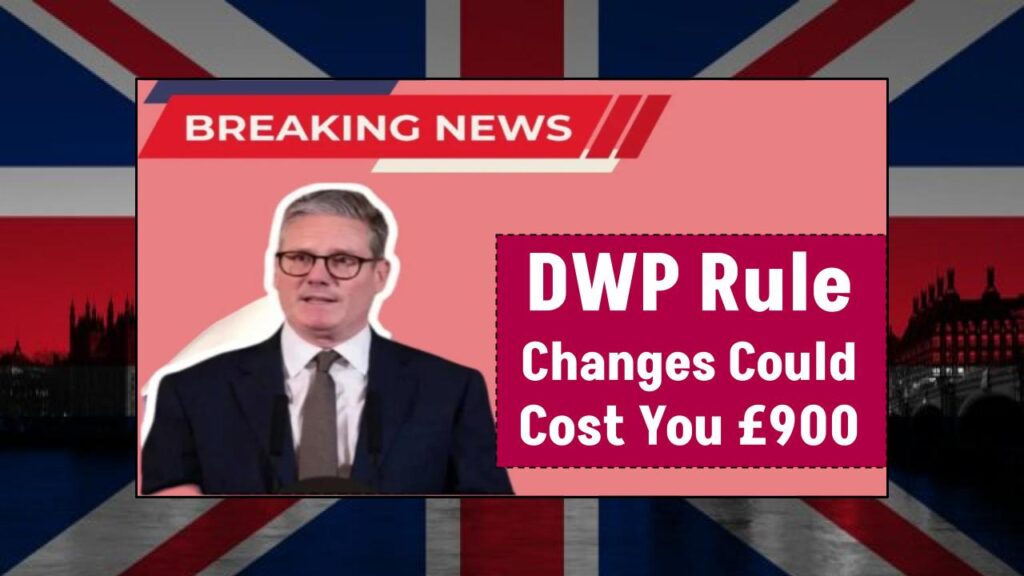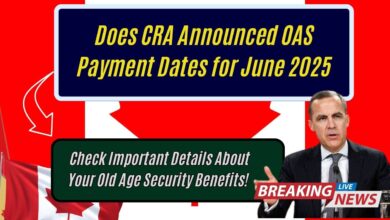Miss Out and You Could Lose £900: What the New DWP Eligibility Rules Mean for You
DWP Eligibility Rules: The UK government has rolled out major updates to how benefits are assessed and distributed — and if you’re not paying attention, you could lose up to £900 a year. These changes, introduced by the Department for Work and Pensions (DWP) in 2025, affect millions of people receiving Universal Credit (UC), Personal Independence Payment (PIP), and other key support systems.

Whether you’re receiving benefits, supporting someone who is, or simply want to stay informed, this guide will help you understand what’s changing, why it matters, and how to protect yourself financially.
DWP Eligibility Rules
| Topic | Details |
|---|---|
| Main Change | DWP is updating eligibility rules and payment structures for key benefits. |
| At Risk | Up to 900,000 people may lose money; 25,000 terminally ill could lose over £2,000/year. |
| Benefits Affected | Universal Credit (UC), Personal Independence Payment (PIP), ESA (Employment and Support Allowance). |
| Action Required | Respond to migration letters within 3 months; reassess eligibility using benefit calculators. |
| New Rule | Tighter PIP scoring; lower UC health payments from April 2026. |
| Support Tools | Turn2Us, EntitledTo, Citizens Advice |
| Source | GOV.UK |
What Are the New DWP Eligibility Rules in 2025?
The DWP has introduced a series of reforms aiming to modernize and streamline how benefits are awarded, with a stronger focus on reducing fraud and encouraging employment. However, these changes could also mean reduced payments for many vulnerable individuals.
Let’s break it down into four main changes:
1. Universal Credit Migration from Legacy Benefits
The DWP is moving over 400,000 people from older “legacy” benefits (like income-related ESA) to Universal Credit through a process called managed migration.
What does it mean?
If you’re on ESA, Housing Benefit, or Income Support, you’ll receive a letter telling you to switch to Universal Credit.
Why does it matter?
If you don’t respond within three months, your payments could stop altogether.
Who’s affected most?
Around 900,000 people could receive less money after moving, according to The Scottish Sun.
What can help?
Transitional protection may cushion your finances temporarily, but only if you move through managed migration — not if you switch voluntarily.
2. Stricter Personal Independence Payment (PIP) Assessments
If you rely on PIP to help with a disability or long-term health condition, prepare for stricter assessments.
What’s changed?
You must now score at least four points in a single daily activity to qualify. This impacts people with autism, ADHD, and mental health conditions in particular.
What’s the risk?
Some may lose up to £675 per month, according to The Guardian.
Real-world impact:
A young adult with autism who previously qualified with a cumulative score might now be excluded if they don’t meet the new “four-point rule” in one specific area.
3. Reduced UC Payments for Health-Related Conditions
Starting April 2026, the amount given to new UC claimants with health conditions will drop.
Old rate: £423.27/month
New rate: £208.10/month
Difference: Over £2,580/year lost
4. Enhanced Financial Surveillance of Benefit Claimants
The DWP is being given more power to check bank accounts to detect fraud, via the Public Authorities (Fraud, Error and Recovery) Bill.
How?
Banks must now report suspicious accounts or those holding over £16,000 — the current UC savings threshold.
Why it matters:
Even if you’re eligible, not reporting savings or a change in circumstances could result in fines or loss of benefits.
What You Should Do Now
Staying ahead of these changes can help you avoid losing money — or worse, falling out of the system altogether.
Here’s what to do step-by-step:
1. Watch Your Mailbox
If you’re on legacy benefits, read any letter from the DWP carefully. It’s likely a migration notice — you’ll have three months to respond.
2. Use Benefit Calculators
Websites like:
- Turn2Us
- EntitledTo
Let you input your situation and get an estimate of what you’ll receive under the new system. They’re free, anonymous, and updated regularly.
3. Get Professional Help
If you’re confused or worried, organizations like Citizens Advice are trained to help you understand your rights, file appeals, and manage paperwork.
4. Keep Records
Start keeping:
- Letters from the DWP
- Proof of medical conditions
- Bank statements
This makes the assessment or appeal process smoother.
State Pension Bombshell: DWP to Roll Out Two Major Changes This May!
“DWP Just Announced a £300 Payment – Everything You Must Know for 2025!”
£100 DWP Cost of Living Payment Incoming – Is Your Household on the List?
FAQs on DWP Eligibility Rules
What is managed migration?
It’s the DWP’s process for moving people from old benefits (like ESA) to Universal Credit. If you wait for your migration notice and follow instructions, you may qualify for transitional protection payments.
What happens if I miss the migration deadline?
You could lose your existing benefits and may have to start a new UC claim from scratch — possibly without transitional protection.
Am I still eligible for PIP under the new rules?
Possibly. You’ll need to meet the updated criteria, especially scoring 4+ points in a single activity (not spread across several). Conditions like ADHD and anxiety may be reassessed differently.
Can the DWP look at my bank account?
Not directly — but under new laws, they can ask banks to flag accounts where savings exceed £16,000 or other suspicious activity occurs. This is meant to reduce fraud.
What if I’m terminally ill?
Unfortunately, you may be affected by the reduced health component in UC from April 2026. However, you may still qualify for other forms of support — check with your GP or Citizens Advice.







